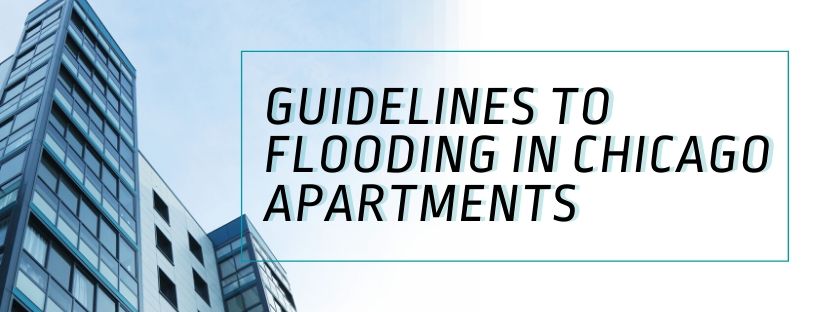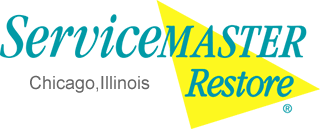Apartments bring freedom from mortgages and allow you to move whenever you want. However, tenants can also encounter questions about who is responsible for what. For example, if your apartment building is flooded or if you sustain water damage because of flooding in another tenant’s unit, what are your options?
Ideally, your landlord will quickly and fully clean up all water, restoring your personal property. They will do a professional job to ensure mold does not happen. If, however, clean-up does not happen in a timely way or is incomplete and causes health problems, mold or other concerns, you have options.

Withholding Rent After Flooding Happens
Under Chicago Residential Landlord Tenant Ordinance (RLTO), you can send your landlord a written letter indicating that the lease will end within 14 days if they do not fix major flooding or water damage. Your landlord will need to return the security deposit, the rest of the rent for the month and any interest.
If the water damage is only a few hundred dollars or less than half the rent amount, you can send a written letter to the landlord or building owners, indicating the problem needs to be fixed within 48 hours, if it’s an emergency, or 14 days. This letter should state if the landlord does not act, the tenant will take care of cleanup and deduct the cost of the cleanup from the rent. You can then send a bill to the landlord if you paid for cleanup yourself. You can also send a written letter indicating you will withhold a reasonable amount from the rent until the problem gets resolved.
In general, it is important to have everything in writing or have documentation of the problem. If you simply withhold rent, the landlord can argue that you did not act in good faith or claim they did not know about the problem. It's useful to send all written notice through registered mail, requesting a signature. This way, you have proof your letters were received.
Also, you need to consider where the water problem comes from. If you or your guests caused the water damage, you might be responsible. The RLTO regulations may not allow you to get the clean-up costs deducted from rent.
What to Do First After Flooding
If your Chicago apartment has been flooded, you will first want to contact the appropriate person. This may be the super, apartment building manager, janitor or landlord. Take photos of the problem and write down details, including the time of the incident and when you contacted someone. Documenting the facts helps you ensure everything is handled timely.
If the situation is serious, you may need to stay somewhere else until the problem gets resolved. If the building is ruined, you may be evicted. Try to maintain good written communication, if possible, so you have a record of your actions. Write down each conversation you have and any promises made.
If you have minor or serious damage and need to take care of water cleanup yourself because your landlord will not, contact ServiceMaster of Lincoln Park to learn about our 24/7 water and disaster cleanup and help during a flood.

